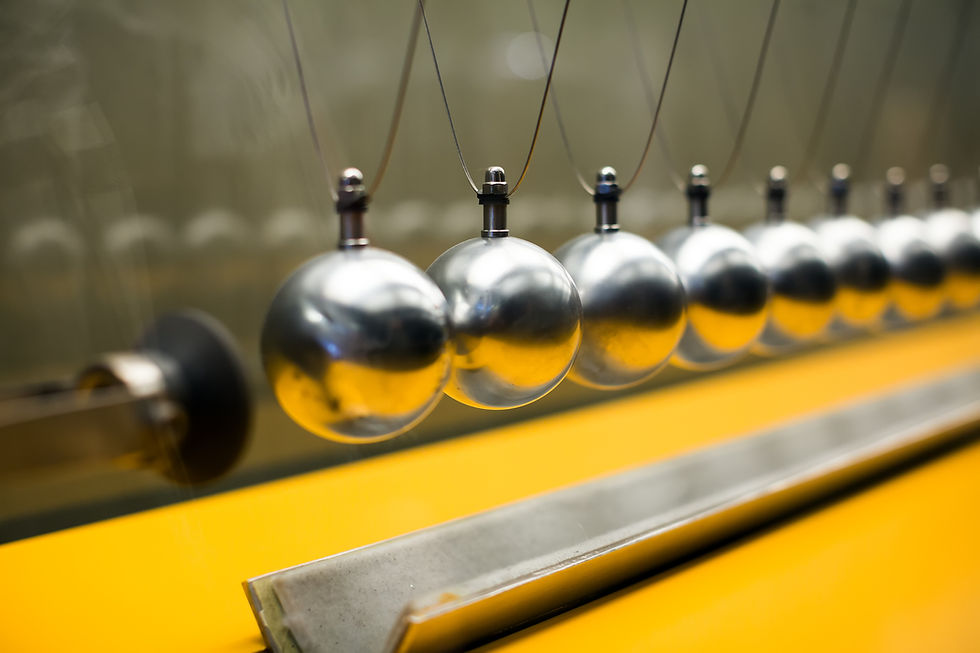When Is the Right Time to Get a Physics Tutor for Your High School or College Student?
- mitphysicswizard
- Apr 9, 2025
- 3 min read
Physics is well-known for being a difficult subject, even for students who perform well in other disciplines. Parents frequently question when it is appropriate to consider tutoring. The reality is that delaying until a student is already having difficulties can complicate matters. Ideally, tutoring should start proactively—when the curriculum becomes more complex or when grades begin to level off.
Students aspiring to attend prestigious universities frequently enroll in advanced science courses at an early stage, such as honors physics, AP Physics 1, or AP Physics C. Although these students may appear confident, the complexity and speed of these courses can be daunting. Therefore, private physics tutoring for high school students targeting Ivy League schools is more focused on acceleration than remediation.

Tutoring can play a vital role during transitions—such as moving from regular physics to AP, or from high school to college-level coursework. These shifts bring a different level of expectation. Ivy League institutions often seek students who not only get good grades but also show advanced understanding and curiosity. A physics tutor helps your child ask better questions, find connections across topics, and build a strong intellectual foundation.
A common misconception is that tutoring is only for students who are falling behind. In reality, it’s a tool for academic enrichment. By starting early, you give your child the chance to master difficult concepts like Newtonian mechanics, energy conservation, or electromagnetism before they become roadblocks. Students who get this head start are often more relaxed and confident during class, which improves participation and overall engagement.
As a parent, you might ask, “But my child is already getting As—why would we need a tutor?” The answer lies in long-term strategy. Top-tier colleges evaluate students not just on GPA but on academic rigor and performance in challenging environments. Private physics tutoring for high school students aiming for Ivy League schools gives your child an edge by reinforcing high-level thinking skills, exposing them to real-world applications, and preparing them for AP exams or SAT Subject Tests.
Let’s talk about mindset. Advanced students can still struggle with imposter syndrome or perfectionism. Having a tutor who can not only teach physics but also support healthy study habits and emotional resilience is a powerful asset. A great tutor does more than explain content—they coach, encourage, and empower.
Another important consideration is that physics is cumulative. If a student misunderstands motion in one dimension, it’s going to haunt them when they move to projectile motion or rotational dynamics. A physics tutor identifies these foundational weaknesses and corrects them early, building long-term mastery. This means fewer gaps to close before the AP exam or final.
Additionally, online tutoring makes high-quality instruction accessible from anywhere. Your student can work with a top-tier tutor who specializes in Ivy League preparation, even if you live in a small town. Modern platforms offer interactive whiteboards, real-time problem solving, and personalized learning plans that mimic the experience of in-person tutoring.
Another key benefit of tutoring is customization. Physics classes are often designed to serve a wide range of learners, so they move at a pace that doesn’t suit everyone. But with one-on-one support, your child can move faster through concepts they understand and take more time with the ones they don’t. This tailored approach is why private physics tutoring for high school students aiming for Ivy League schools is so effective—it adapts to the student, not the other way around.
Think of tutoring as investing in a skill set. Physics teaches more than just science—it fosters critical thinking, analytical reasoning, and creative problem-solving. These are traits that Ivy League admissions committees love to see.
Some families wait until a mid-semester grade dip or a bad test result to seek help. But by then, the student may already feel discouraged. Starting tutoring before problems arise shifts the narrative. It becomes about growth and opportunity, not rescue.
Finally, don’t overlook how tutoring can impact your child’s confidence. It’s incredibly powerful for a student to walk into a tough physics exam knowing they’ve already worked through the hardest questions with a tutor who believes in them. That self-assurance often translates into better test performance and lower stress.
To sum it up, private physics tutoring for high school students aiming for Ivy League schools should begin not when your child is in trouble, but when they start reaching for more. It’s an investment in future success—not just in physics, but in college admissions, academic identity, and personal growth.
So if your student is taking advanced classes, dreaming big, or just ready to level up, the right time to start tutoring is now. Help them aim higher, stay ahead, and unlock their full potential.




Comments